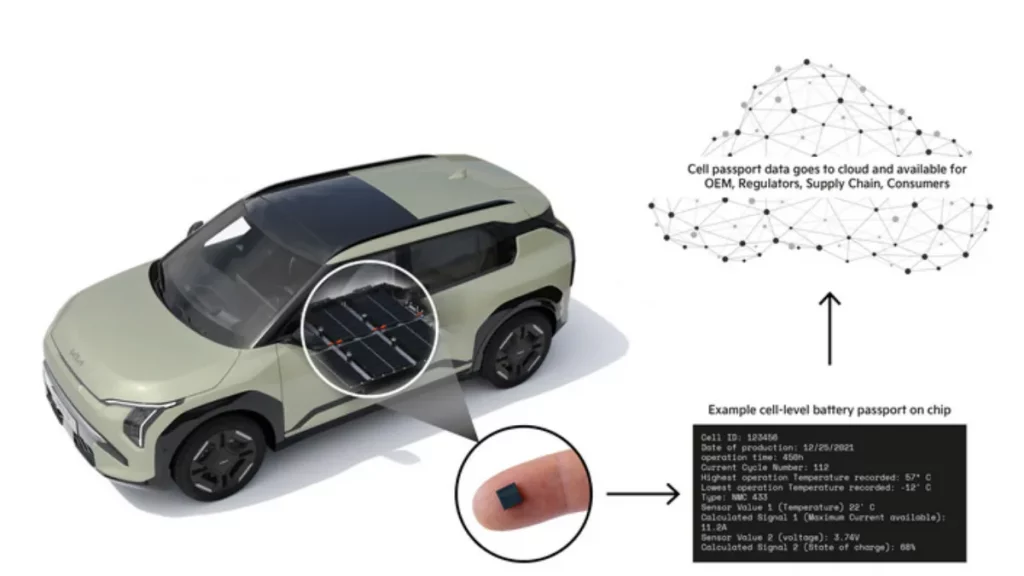
Kia Europe has begun testing of a cell-level battery passport which will offer live, transparent data on the health and performance of every individual cell within an electric vehicle’s battery pack.
The system, which is being trialled in a Kia EV3 fitted with Dukosi’s cell monitoring technology, is the first time a manufacturer has conducted a real-world test of a battery passport operating at the cellular level.
The project aims to enhance transparency, safety and sustainability across the entire battery lifecycle.
A battery passport serves as a digital record that tracks the State of Health (SoH) of a battery in real time. It allows for live diagnostics, precise repair insights, and end-to-end traceability. Kia says this new approach could lead to longer battery life, lower maintenance costs, and greater trust for used EV buyers.
“Kia aims to set a new standard for customers regarding battery transparency and performance,” said Marc Hedrich, president and CEO of Kia Europe.
“Through testing cell-level battery passports, we gain insights on what ownership benefits we can offer our customers. On top of advantages such as extended battery life, we will be building on a relationship of trust as well.”
The EV3 used in the trial transmits live data from each cell to a digital passport, which can be accessed through the car’s infotainment system by drivers, technicians or regulators. The system automatically updates after any repair work to ensure complete traceability throughout the battery’s life. The Kia EV3 shares much of its driveline and technology with the Kia PV5 Cargo and Kia PV5 Passenger, which may well end up getting the battery monitoring system.
The data-sharing environment for the pilot was developed by TNO, while the project itself was coordinated by Delft University of Technology in partnership with Hyundai Motor Group. Technical integration was handled by Hyundai Mobis, with contributions from the EU-funded DATAPIPE project and ARN, the Dutch organisation responsible for end-of-life vehicle treatment.
Kia says its dedicated internal battery passport team is already working with partners across the supply chain to develop a full-scale version that exceeds the EU’s upcoming battery passport regulations, which come into force in February 2027. The final system will include additional safety and performance data, setting what the company describes as a benchmark for the industry.
Unlike conventional monitoring systems that assess the health of the entire pack or module, Kia’s new system measures the performance of each cell. This allows for targeted cell-level repairs, rather than replacing entire modules.
For customers, the technology promises practical benefits: earlier detection of battery issues, longer service life, reduced repair costs and increased confidence in the used EV market.
Kia’s pilot demonstrates how the brand is aligning innovation with sustainability, setting out a future in which battery transparency, circularity and customer trust go hand in hand.
“This technology not only meets regulatory expectations but redefines them,” said Hedrich. “It’s another step toward a smarter, cleaner, and more customer-focused EV ecosystem.”
